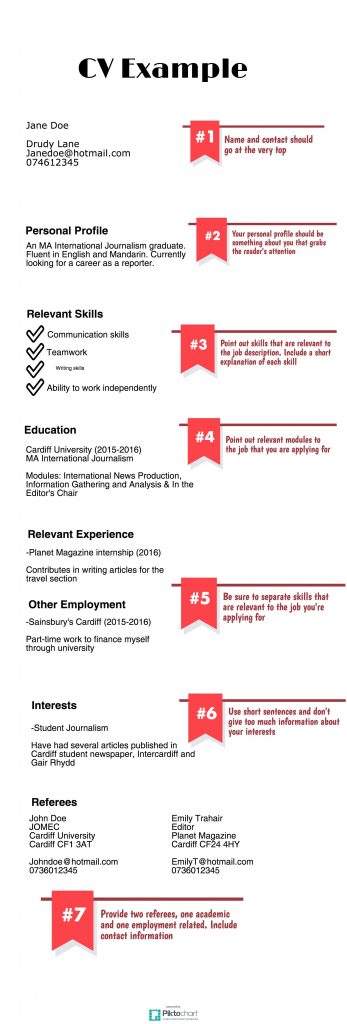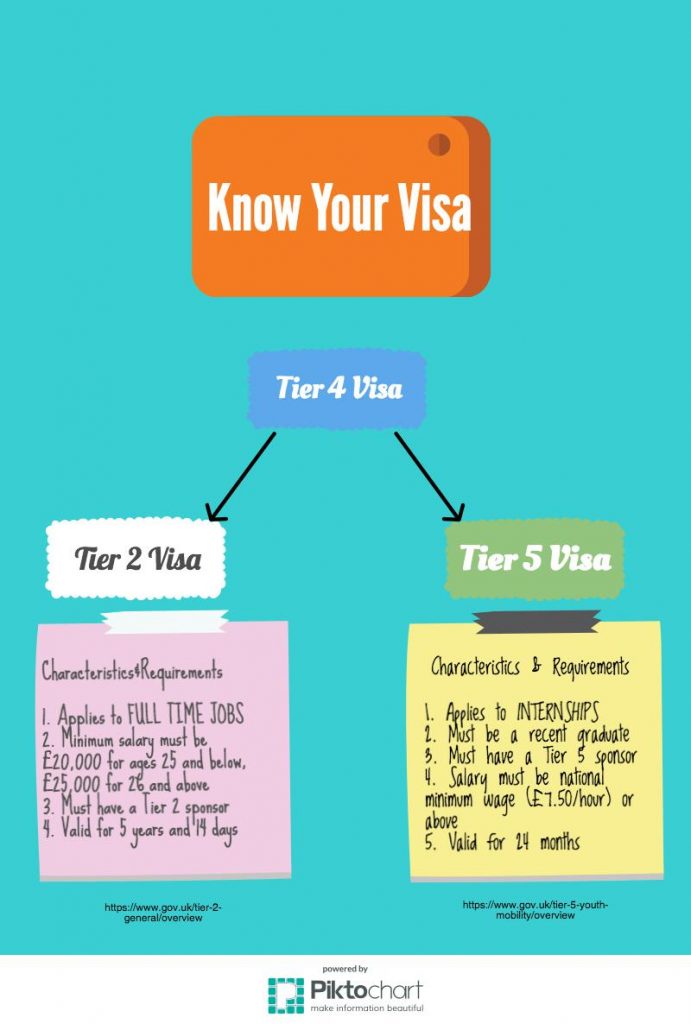As you finish your final year, you are probably thinking of looking for a job in the UK. However, as an international student, it is not easy to find a job.
Finding a job in the UK may be a little more challenging than in your home country. Not only you have to be qualified for the job, but you also have to make sure you get all the steps right to get the right visa and requirements. This time, Intercardiff will guide you step by step into landing your dream job.

Setting up an effective CV
To land yourself a job, surely you will need an effective CV. However there are more than one type of CV out there and you have to make sure your CV can represent your skills and experiences effectively but efficiently. InterCardiff went to career advisor, Llinois Carpenter, for tips on building a CV to land you your dream job.
- Know your type of CV
Many people are not aware of the fact that there are two types of CV, skill-based and chronological. A skill based CV works best for fresh-graduates who don’t have much or no work experience at all. Therefore, the CV should focus on the skills that you have. If you have had work experience in the past, then chronological CV will work better for you, as you are able to state your work experiences chronologically.
- State relevant modules
Rather than just mentioning your major and university, be sure to state the modules that are relevant to the job that you are applying for. However don’t make the mistake of stating every single module that you took throughout your course, just state the relevant ones. For example, if you are applying for an editor’s position, it would be very useful to state that you took the module In The Editor’s Chair and a little detail about the module.
- State referees
This may not be a common thing in other countries, but in the UK it is very important that you state two referees. One academic and one personal or employment related. If you haven’t had work experience that it two academic referees should just be fine. The referee information should include a phone number and an email address.
- Highlight anything relevant
If you have had a lot of experience in the past, it is a good idea to separate the experience that is relevant to the job you are applying for. You wouldn’t want your part time job at a diner stand out more than your experience as a lab assistant when applying for a chemist position. Therefore you should have a separate section for relevant experience and other employment
- Join CV writing workshops
CV workshops are a tremendous help in putting together an effective CV. Plus they can help you with your CV according to the industry you are applying to. Check with your university student support center for CV workshops, they are usually provided for free by the university.

Getting your CV out there
Once you have made a strong CV, it’s time to get them flying to potential employers. As a fresh graduate who has had no work experience in the UK, the best way to get started is by visiting job and career fairs. Here is a list of upcoming job fairs to get you started.
Source:
thejobsfair.co.uk
http://www.cardiff.ac.uk/business/develop-your-workforce/recruit-our-graduates/careers-fairs
Prepare for Your Interview
After sending out your CV, be prepared to get called to interviews. If you’ve never been to a work interview before, here are some tips that can help you nail your interview and land your dream job.
Know Your Visa
Once you’ve passed all the basics of applying for a job in the UK, you need to be ready for what comes next; getting a working visa. InterCardiff went to International Student Support manager, Glynn Lloyd, for everything you need to know about a working visa.
“The first thing that you need to know is which visa you will need and what are the requirements for those visas,” says Glynn Lloyd. “As a student you are now on the Tier 4 visa, you will have to get a Tier 2 or Tier 5 visa depending on the work that you are going to do.”

By now you may be wondering, what is a sponsor and however are you going to find one?
In order to stay in the UK, you will need a company that is willing to sponsor your visa. Unfortunately, not all companies are willing to sponsor non-UK passport holders. You can visit https://www.gov.uk/government/publications/register-of-licensed-sponsors-workers and download a list of all the companies in the UK that are willing to sponsor you for a Tier 2 or Tier 5 visa.
For more information about post-study visa in the UK, you can visit https://www.gov.uk/browse/visas-immigration/work-visas or visit the UK visa and immigration center in 31-33 Newport Road, Cardiff, CF24 0AB

